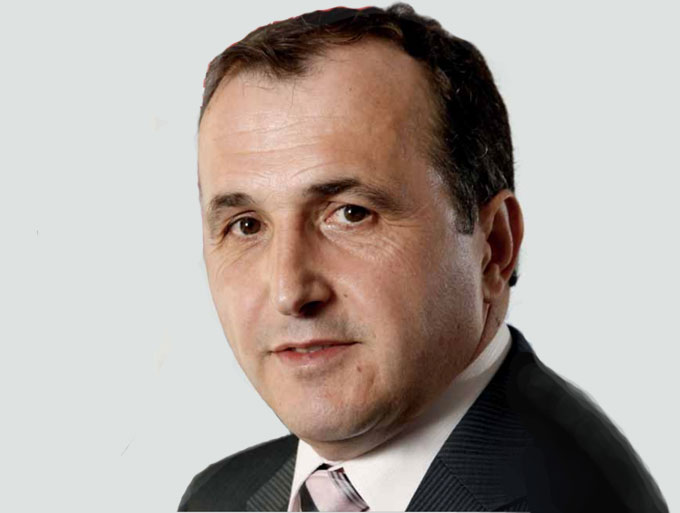
From airport checkpoints to counter terrorism to future medical imaging devices, the use of x-ray 3D imaging is the cornerstone of many of the applications that are critical to security and medical markets.
Notably, airport checkpoint technology is facing an immediate challenge, with global passenger numbers on track to double by 2030*.
The evolving technology requirement for checkpoints is to process far more passengers per hour than the current industry average of 200.
Faster screening with improved threat detection are the holy grail.
Similarly, compact and agile systems with 3D imaging are major technology advancements the medical market can use to deliver improved patient diagnosis and outcomes.
Towards that en, Micro-X, the global leader in cold-cathode x-ray technology, and Thales, a leader in security and medical imaging, have combined forces to develop X-ray imaging systems based on X-ray sources that use Carbon NanoTubes (CNT) cathodes together with AI (Artificial Intelligence) to allow for a new generation of mobile X-ray equipment, with disruptive imaging performance.

CNT is a crystalline variety of carbon with properties that improve the efficiency of x-ray imaging by orders of magnitude.
By combining this revolutionary technology, developed byMicro-X with Thales’s 60 years’ experience in x-ray devices, the two organizations will initially collaborate on the design of novel, miniaturized X-ray sources.
These sources will be produced by Thales and manufactured in Moirans, France, and will power both Thales and Micro-X’s future roadmap of innovative x-ray products for medical and security markets.

“This is just the beginning, like those Silicon Valley pioneers in the 70’s we are at the birth of a new technology evolution,” explained Jean-Jacques Guittard, Thales Vice President of Microwave and Imaging Sub-Systems.
“CNT is a game changer in so many fields but none offer such practical and quantifiable benefits as in the X-ray imaging market.”
“From airport checkpoints to counter terrorism activities to future medical imaging devices, Thales and Micro-X are on the edge of a historically decisive moment.”
“In addition to these high-tech synergies and as a major player in the digital domain, this partnership will give us a technological leap none else can offer.”
In the second part of the multi-faceted collaboration both companies will address global sales and support of Micro-X’s Mobile Backscatter Imager (MBI) for assessment of Improvised Explosive Devices (IEDs).
Design and development is already underway in Adelaide following very positive enduser feedback of the operational concept and the imaging performance demonstration conducted for the Australian Defense Force’s Counter-IED Task Force.
Under this alliance Thales, an established global supplier of defense and security technology systems, will cross-sell the MBI product manufactured in Adelaide.
Thanks to its compactness and imaging sensitivity compared to traditional technologies, they are perfectly positioned to address future regulations being developed and enacted by governments, to enable security forces to detect threats more rapidly.
CNT X-ray also brings us closer to a future airport checkpoint system that no longer requires passengers to queue up, open bags and remove electronics devices and liquids.
Instead, passengers will simply set their closed bag on the scanner and walk through another scanner.
By coupling carbon nanotubes cathodes with backscattering image processing algorithm and Artificial Intelligence to more efficiently identify suspicious items, the new equipment will achieve a level of miniaturization that will lead to significant space reduction.
This can in turn free valuable terminal real estate currently allocated to security checks, for commercial use and improved passenger flow.
The resulting efficiency will allow airport authorities to re-organize terminals, to drive up commercial value thus open more revenue streams.
“Today is a huge moment in Micro-X’s history,” said Peter Rowland, Micro-X’s Managing Director.
(Hear from Peter Rowland, Managing Director for Micro-X as he describes the company’s nanotube technology and expectations for the company moving forward. Courtesy of Morgans. Posted on Nov 5, 2017.)
“The strategic and operational importance of having established and proven our own CNT and x-ray tube technology in-house cannot be overstated,” continued Rowland.
“We now have, co-located with our product manufacturing in Adelaide, complete control of the technology which will shape our destiny with our current and future products.
“It is doubly exciting that we can announce this today now that, with FIRB approval in place, our journey with Thales can commence in earnest as we together develop and take to market the innovative x-ray products which only this technology can permit.”
*Source: IATA















